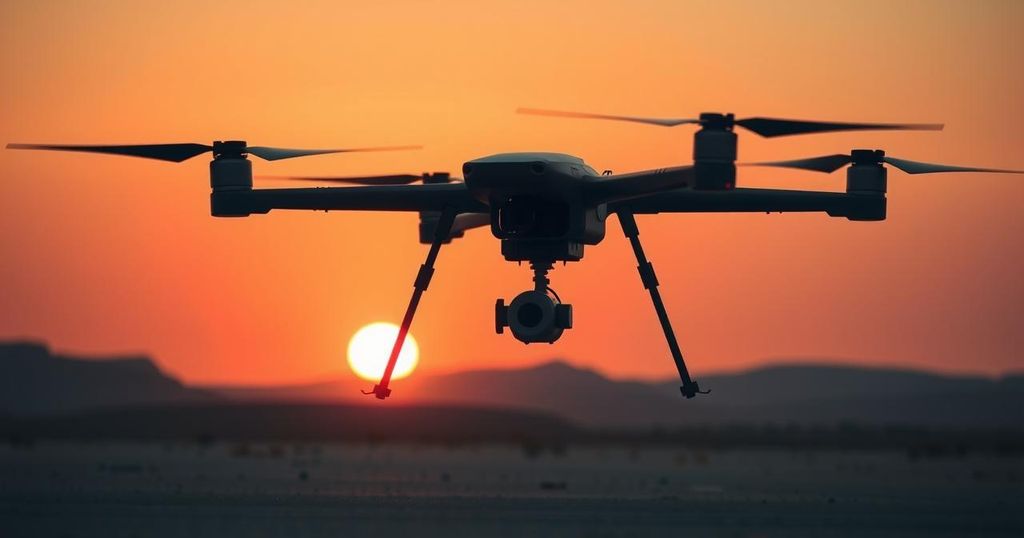Djibouti conducted a drone strike near the Ethiopian border, killing eight militants labeled as terrorists by the government. The Armed Front for the Restoration of Unity and Democracy (FRUDA) was identified as the targeted group. Collateral damage among civilians was reported, but further specifics were not disclosed. The incident highlights ongoing ethnic tensions and security challenges in the region.
Djibouti’s security forces conducted a drone strike near the Ethiopian border resulting in the deaths of eight members of a group labeled as terrorists. According to the Djiboutian defense ministry, this operation targeted militants at Addorta, situated approximately six kilometers from Ethiopia’s border. While the government confirmed the neutralization of these terrorists, it also acknowledged collateral damage involving local civilians, although specifics on civilian casualties were not disclosed.
Alexis Mohamed, an advisor to President Ismael Omar Guelleh, identified the individuals killed as members of the Armed Front for the Restoration of Unity and Democracy (FRUDA), classified by Djibouti as a terrorist organization. The government asserted that the group has engaged in hostile activities threatening security in the region, particularly towards advanced military posts. In contrast, an Ethiopian newspaper alleged that the drone strike occurred within Ethiopian territory, a claim the Djiboutian government firmly denied.
Security officials in Djibouti did not provide additional information regarding the incident despite inquiries from media outlets. This incident follows a history of violence in the region, including an October 2022 attack on barracks that resulted in the deaths and abduction of Djiboutian soldiers, for which FRUD was blamed. Historically, FRUD emerged from an anti-government movement in the early 1990s, advocating for the interests of the Afar ethnic community against rival factions.
Djibouti houses various international military installations from countries such as the United States and China, given its strategic location along the Bab El Mandeb Strait—vital for global maritime routes. This drone strike coincides with recent actions by U.S. forces targeting the Islamic State affiliates in Somalia, indicating a continued focus on counter-terrorism efforts in the Horn of Africa.
In summary, the drone strike in Djibouti highlights ongoing security challenges posed by extremist groups in the area, particularly the threat from FRUDA. The claims of civilian casualties and the contention regarding territorial integrity underline the complex dynamics at play in this region. As Djibouti deals with these tensions, it remains crucial to address both national security and humanitarian concerns in its response strategies.
The conflict in Djibouti has historical roots in ethnic tensions, particularly between the Afar and Issa communities. The Armed Front for the Restoration of Unity and Democracy (FRUDA) emerged in the 1990s as a militant faction within the Afar group, advocating for their interests and engaging in insurgency against the Djiboutian government. Over the years, FRUDA has been involved in various conflicts, which have escalated into significant incidents of violence, including kidnappings and military confrontations with Djibouti’s forces. The recent drone strike reflects ongoing tensions and the government’s efforts to assert control and neutralize threats from this armed group.
The recent drone strike executed by Djibouti’s security forces underscores the persistent threat posed by extremist factions in the region, particularly FRUDA. While the government has emphasized its commitment to national security, the acknowledgment of civilian casualties raises important questions about the implications of such military actions. As Djibouti navigates these challenges, balancing security needs with humanitarian considerations will be vital in fostering stability.
Original Source: www.voanews.com




